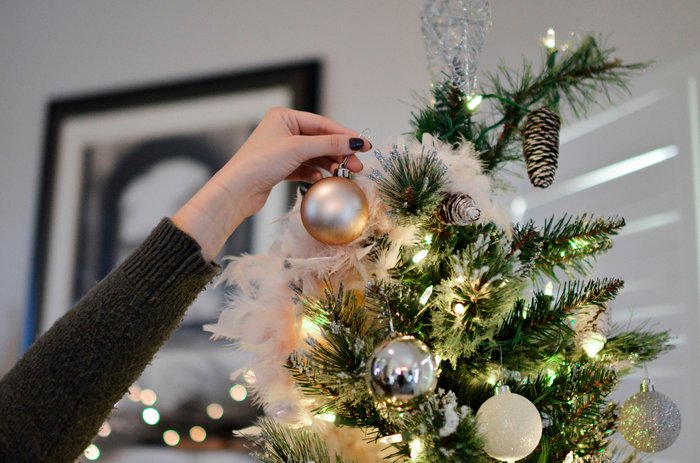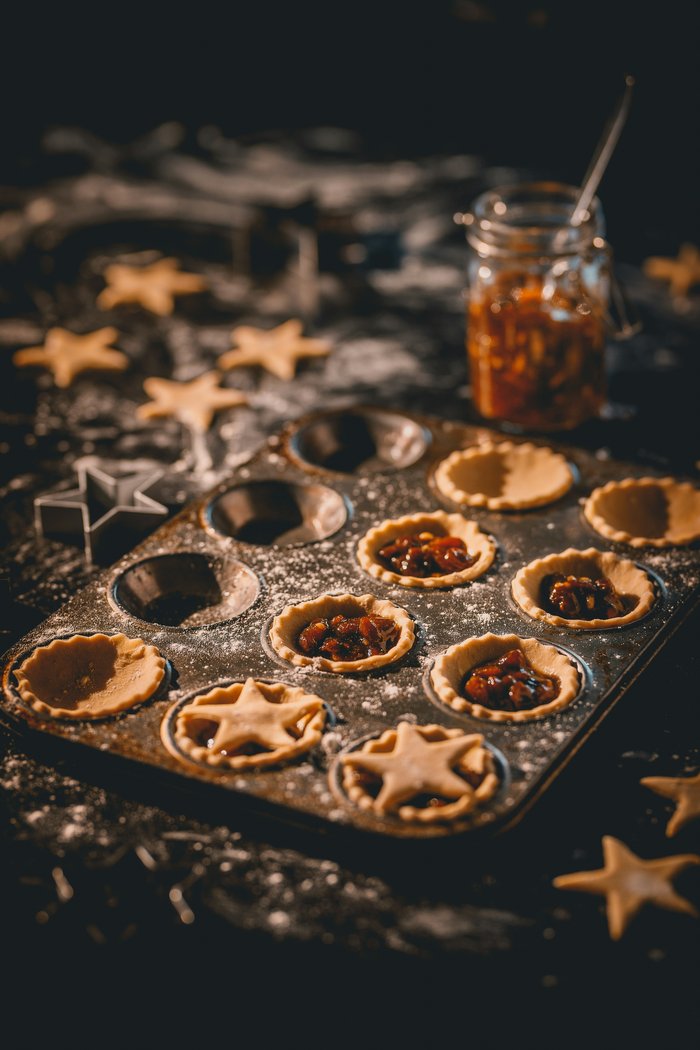How to make the most of the holiday season
December is meant to be a time of joy and celebration, but for people affected by blood cancer, it can also be a challenging time of year.

The pressure to socialise around Christmas and the New Year can be difficult if you're trying to avoid infections like colds, flu and covid, or you're experiencing side effects such as fatigue or eating problems.
We asked our community for their ideas on how to make the holiday season a little easier. The quotes are anonymised but genuine, from members of our online community forum or via our social media channels.
Pacing yourself
It’s a good idea to plan in plenty of rest during the holiday season. Focus on saving your energy for what matters most to you.
Explain to family and friends that they need to be flexible about your involvement in the festivities. “Communicate with your loved ones that you may need to take a break, leave early, or not show up at all. It’s also fine to change your mind!”
You know your body best, and that will help with planning. “I know that after socialising lots at Christmas I will be ill the week after, so I tend not to book too much in that period but give space to recuperate.”
It’s best to pace yourself: “I spread out seeing family and friends over a few weeks so it’s not all a mad rush at Christmas time. I also put the decorations up over the course of a week or two so it’s not too much in one go, and that way, I don’t get too tired.”
You also have a good excuse to be choosy. “Be selective, think about what will give you energy rather than take it away.” It might go against the grain, but try to delegate things: “If hosting or helping with an event, enlist family members or friends to take on tasks like cooking, decorating, or setting up.”
Avoiding infections
This might take a bit of planning too. For example, shopping can be more of a risk around Christmas: “I go to the shops during quieter hours or order online, there’s no pushing around in crowds and it’s more relaxing.”
If you haven’t already, make sure your loved ones know that they must tell you if they are sick.
“I have found it really important to set clear boundaries with family and friends, they all know that if they have any coughs, colds, viruses that they need to inform me so I can assess for myself whether we should go ahead with the time together. This can be difficult when people feel disappointed to be missing out and sometimes trust can be broken – this is particularly hard if it is close family.”
There are alternatives to face-to-face contact if problems arise: “Instead of meeting indoors, I suggest meeting for a short walk with a flask of something warm.”
Of course, it’s perfectly OK to opt out completely. You need to do what’s right for you: “I said no early to avoid disappointment down the line. Be honest and upfront, and don’t feel guilty.”
Eating and drinking
You may have specific needs around food, especially if you're currently having treatment.
Let people know if there's anything you've been advised not to eat or drink. You can show them our guide to eating well with blood cancer to help explain. Blood cancer treatment can also affect your appetite and alter your sense of taste, so tell your host in advance that you’re not being picky, it is just difficult for you to eat normally at the moment.
You may want to consult with your treating team about your medication before the celebrations begin: “If you're taking drugs that restrict times when you can eat, talk to your medical team about the flexibility.”
And if you’ve been advised not to drink alcohol, there are some good alternatives available. “You don’t have to miss out on festive drinks. There are non-alcoholic versions of everything, mulled wine, even my favourite gin!” If you’re visiting someone else, bring your own bottle!

Finding your calm
The holiday season can feel frantic, all the more so if you’re feeling unwell or tired. If you have room, try this tip: “Set a retreat space. Have a quiet spot at home, or your family member’s house, where you can rest and relax when needed.”
Another suggestion to calm the pace is to “take a break from social media, focus on connecting with your loved ones whether that’s in person, or through a quiet call.”
Top tips for friends and family:
If you are hosting someone with blood cancer this December, here’s how to make their visit as comfortable as possible:
- “Keep your gatherings small but fun. If you’re feeling unwell, consider rescheduling to reduce any health risks. This simple act of consideration can ease anxiety and make it easier for them to enjoy.”
- “Remember to be adaptable in your plans. Some days we have the energy, and some we don’t. Be patient and understanding!”
- “Check if your loved one has any special meal preferences or timing needs. Small adjustments can make it more inclusive!”
- “If they can’t join gatherings, make an effort to keep them involved through calls, video chats, or dropping off a plate of Christmas dinner.”
- “Little acts of support – like running errands, shopping, or delivering a homemade meal – can lighten the load. It’s a thoughtful way to show care without adding any pressure.”
- “Help them put up their Christmas decorations and take them down too. It can be a lot of effort and be very fatiguing. Offer to do the leg work and bring a bit of Christmas cheer.”
- “Everyone’s experience is different, so check in with your loved one about what they’re comfortable with. A simple, ‘How can I support you?’ can go a long way.”
- “Christmas can bring mixed emotions. Be there to listen without judgment if they want to talk about how they’re feeling.”
You can also read our general advice for family and friends about supporting someone through blood cancer.
The final word
Ultimately, bear this sound advice in mind as you prepare for the main event:
“It’s just one day! It’s OK if things aren’t perfect, or as you’d hoped them to be. It’s OK if you can’t juggle everything, and comparing this holiday season to previous years can be counterproductive. Accept yourself as you are, and you will make the best of it.”

